Kingsley Ben-Adir: Bringing the legacy of Bob Marley to film in ‘One Love’
Weeks before 'One Love' hits cinemas, actor Kingsley Ben-Adir tells Rolling Stone UK about playing Jamaica’s most famous son, reggae icon Bob Marley — a role he embodies with the full support of the Marley family.
By Nick Reilly
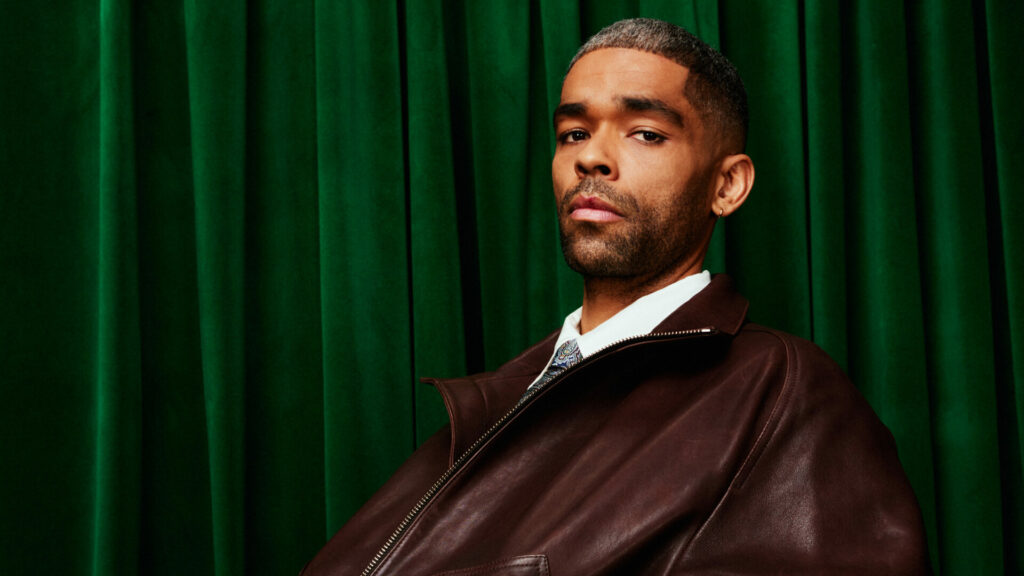
When Kingsley Ben-Adir was first approached to play Bob Marley by the late music icon’s son Ziggy, no less, the daunting prospect of immortalising the eternal reggae icon meant that he almost turned down the role completely. “It initially felt like a no from me,” he recalls. “I really felt like I wasn’t right for it. I don’t sing, I don’t dance, and there was nothing physically similar that meant I could really convince people I was him.”
After spending a weekend delving into the singer’s life, a “transcendental” experience occurred when the British actor found himself watching Marley’s legendary 1977 live shows at London’s Rainbow Theatre. This allowed him to forge a greater connection with the man who brought reggae to the world and, ultimately, to deliver an audition that won over Marley’s family. “When Bob Marley’s family are looking at you and saying they want you to play him, as an artist it feels dangerous to say no,” says the 37-year-old.
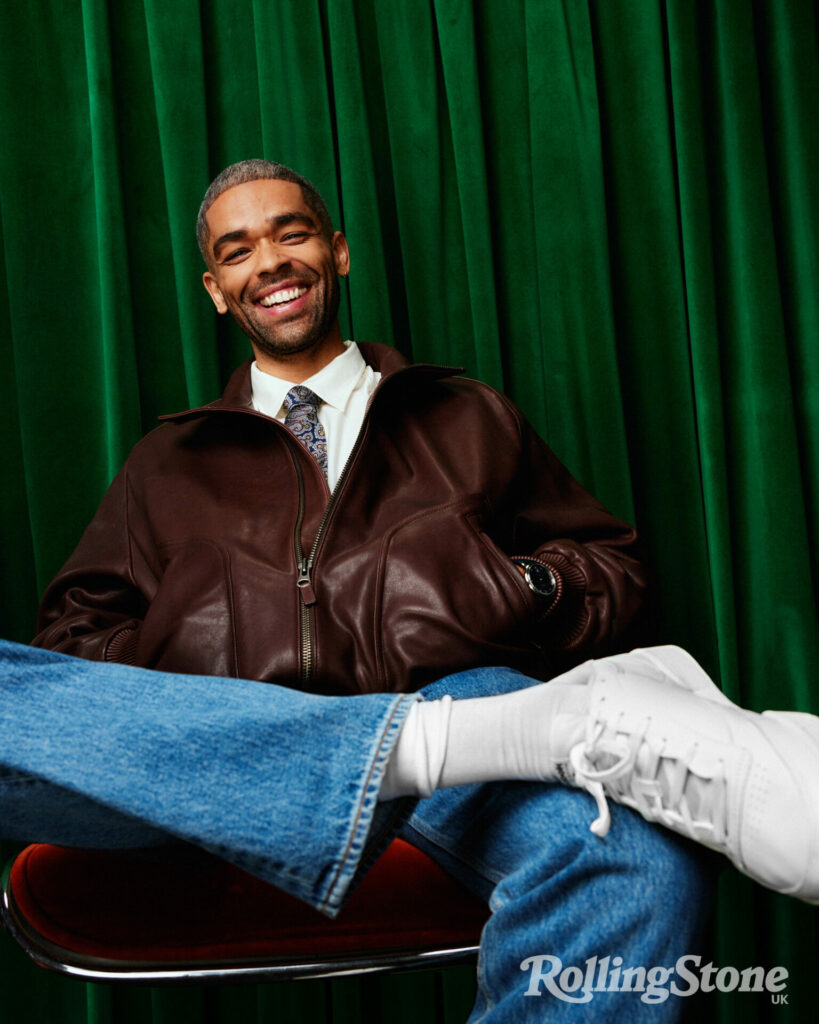
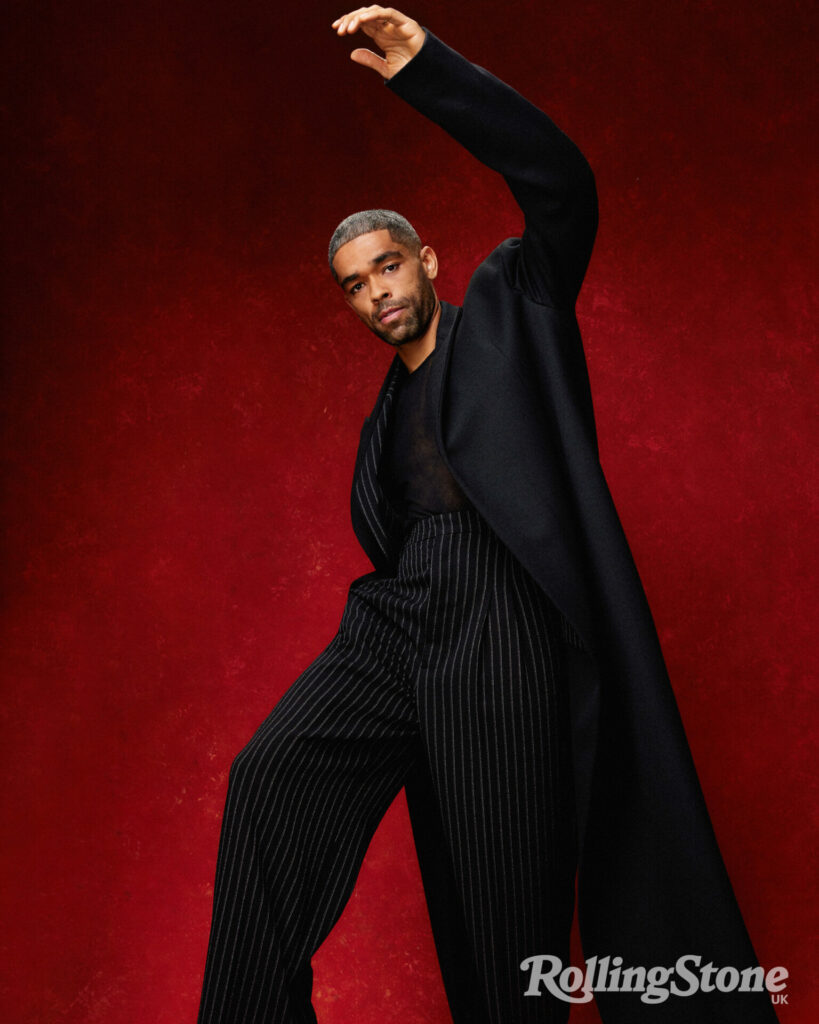
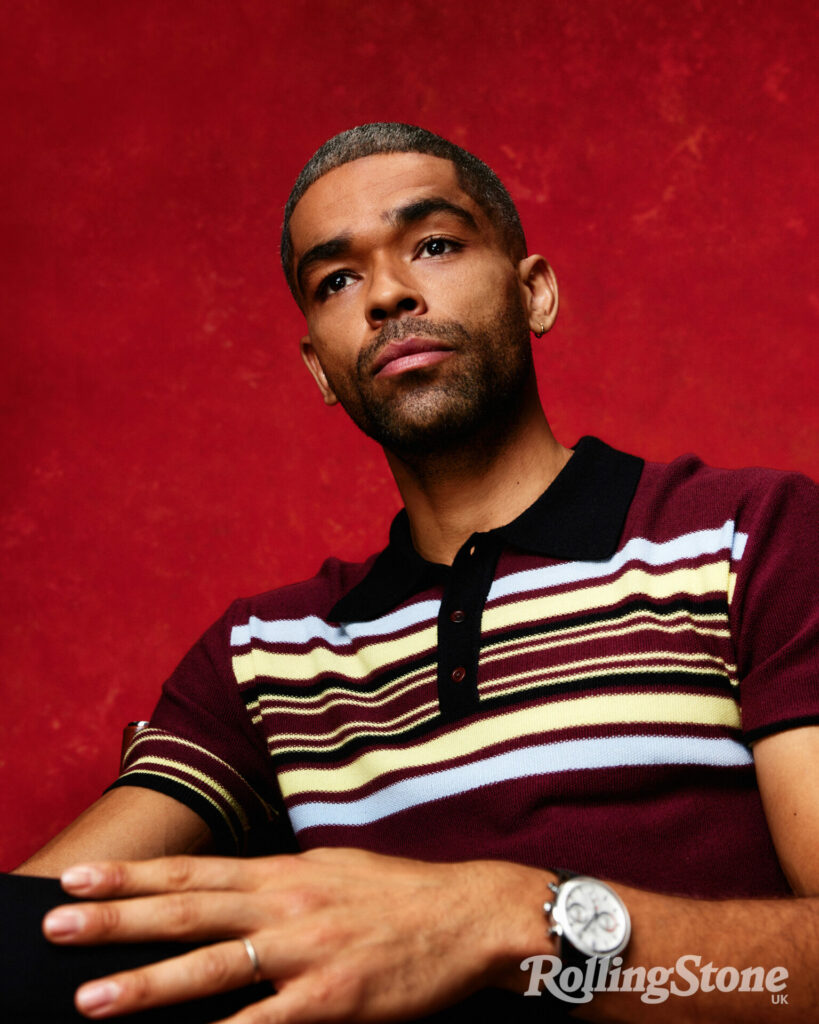
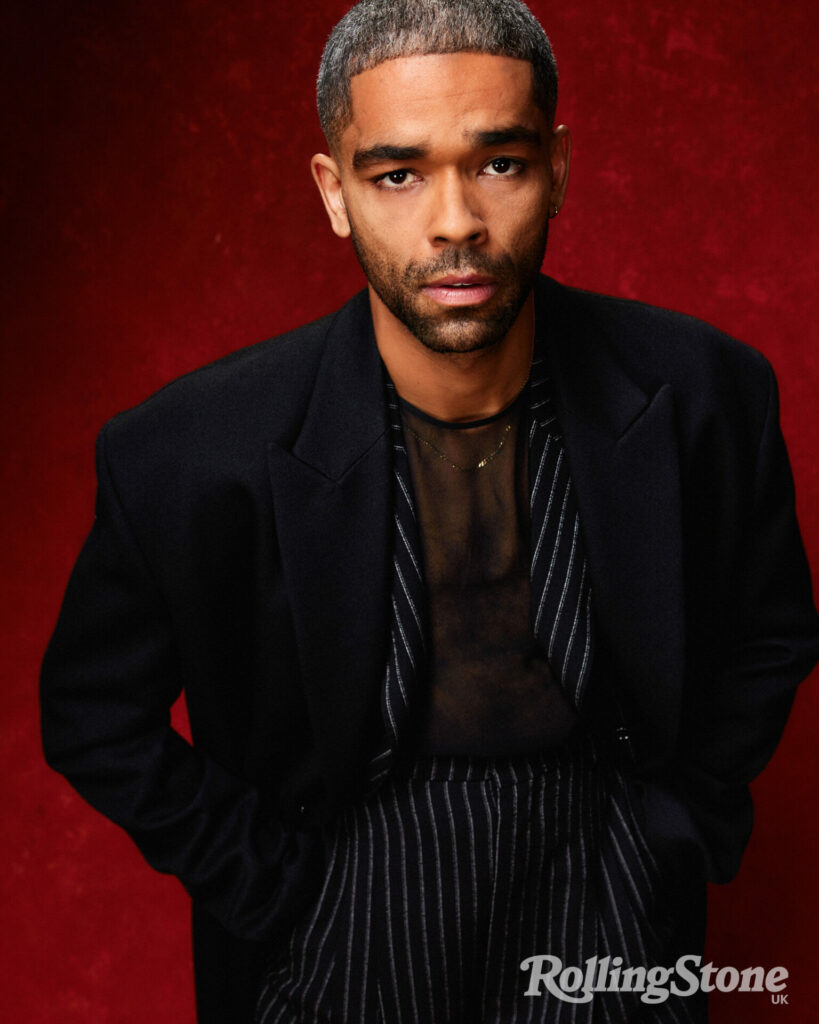
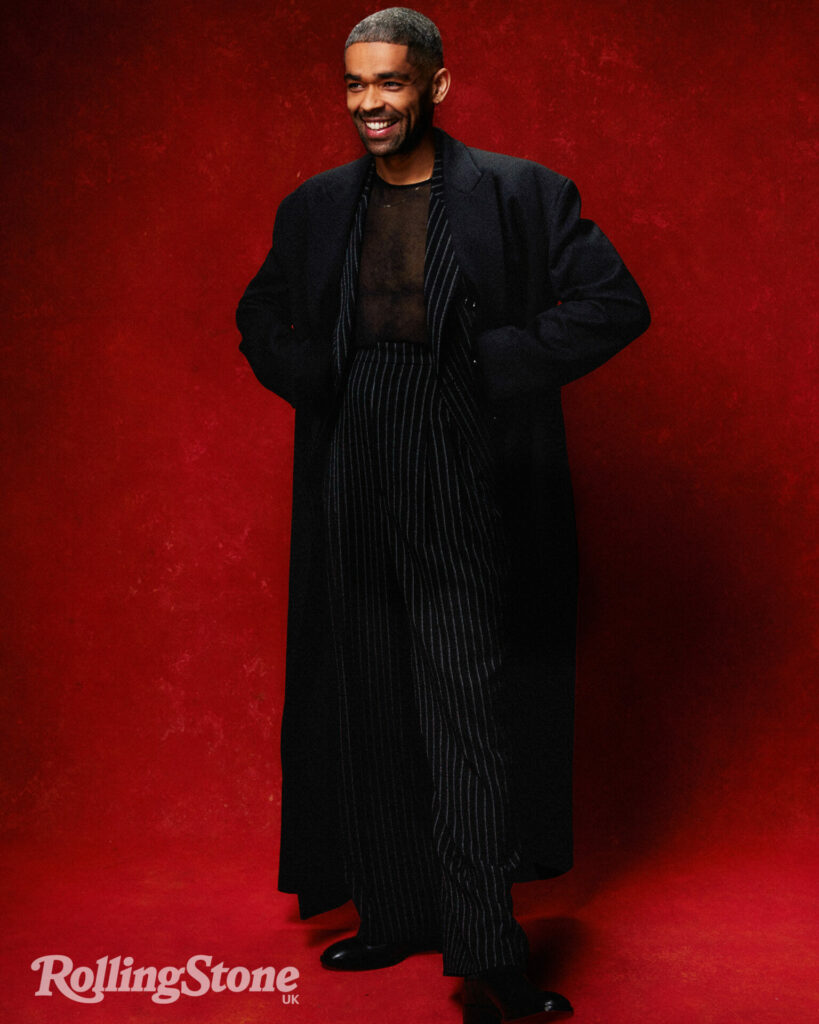
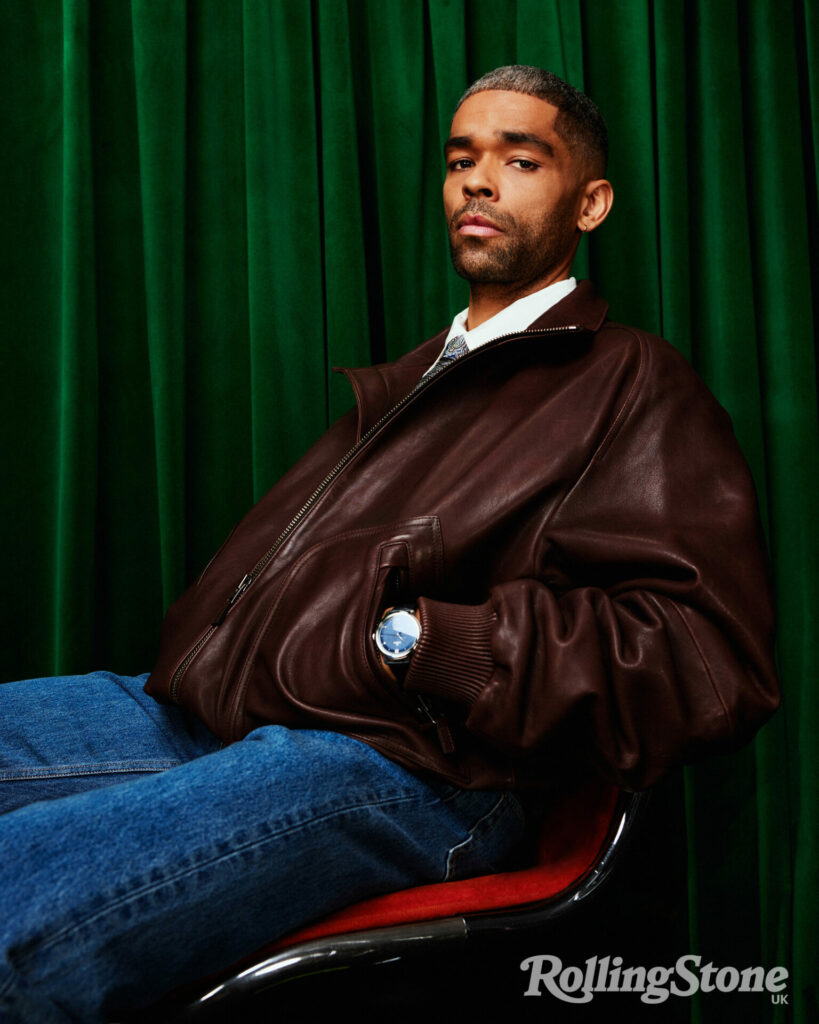
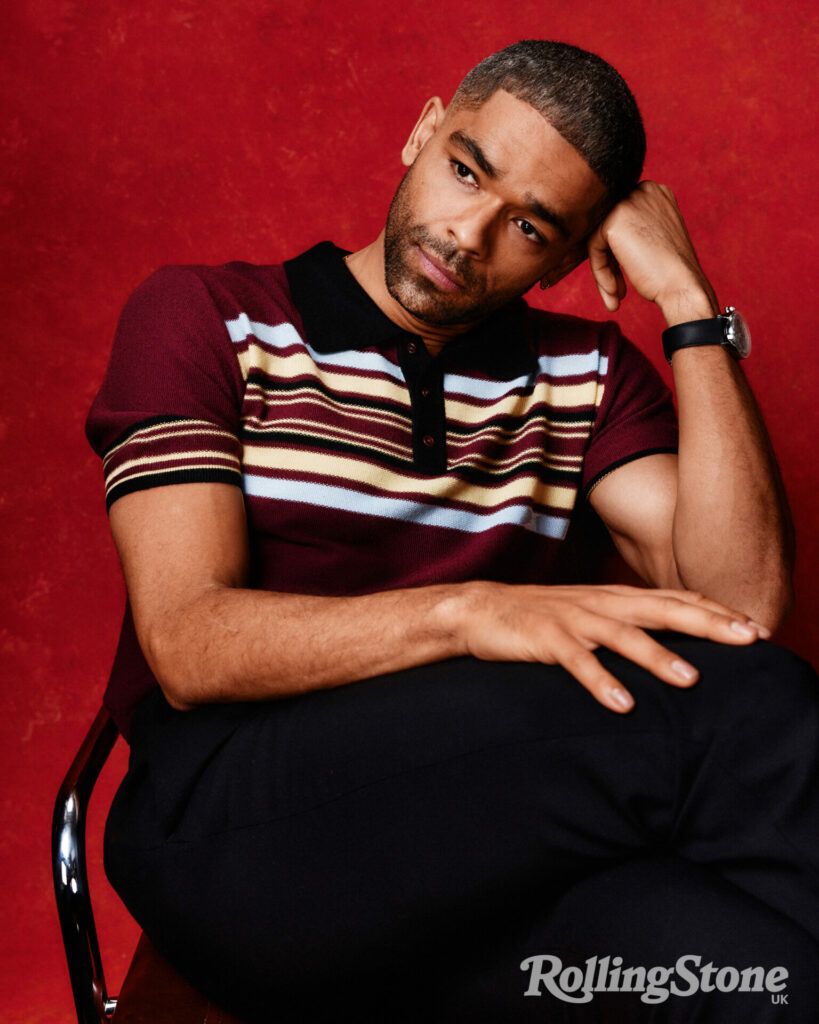
Ben-Adir is speaking to Rolling Stone UK in a London hotel in December 2023, two months before the film is about to hit cinemas. He’s calm and friendly, but the occasional grin that flashes across his face while talking about playing Marley suggests he’s only too aware that this is his biggest role to date, a chance to play a musical great and have that portrayal watched by Marley’s legions of fans across the globe.
Born in north London, Ben-Adir has become an increasingly ubiquitous face on the big screen in recent years. He first found fame playing a series of small-screen roles on cosy UK crime dramas such as Vera and Midsomer Murders, but in recent years Hollywood has increasingly come calling. He won plaudits for his turn as Malcolm X in Regina King’s One Night In Miami, has become part of the MCU with a leading part in Secret Invasion on Disney+, and even portrayed Basketball Ken in Barbie, the biggest film of last year. But it’s in One Love, produced by Ziggy alongside his wife Orly, that Ben-Adir will step firmly into the spotlight. His portrayal of the reggae icon has already won the approval of the wider Marley family, including the late singer’s wife Rita, and Cedella, one of Marley’s daughters.
Part of the Marleys’ endorsement, Ben-Adir says, was an early realisation that a copycat portrayal was not the point of the project. “As we went along, we understood that this wasn’t and should never be an imitation of Bob or an attempt to mimic him. It was a communal effort to get underneath the man and show a side to him that’s more human, to look at some of the struggles and some of the pressures he was under at the time. And I was like, ‘Well, I’m an actor and I can do that.’”
Before One Love director Reinaldo Marcus Green (King Richard) watched Ben-Adir’s audition, the search for someone to play the titular music icon had been prolonged, and the project was in danger of falling into development hell. “It was a long search, and I hadn’t given up, but I thought it was very possible that we weren’t going to find the right actor, and the movie wasn’t going to happen. We’d looked through thousands of tapes, and there were some good actors who just weren’t right,” he reflects.
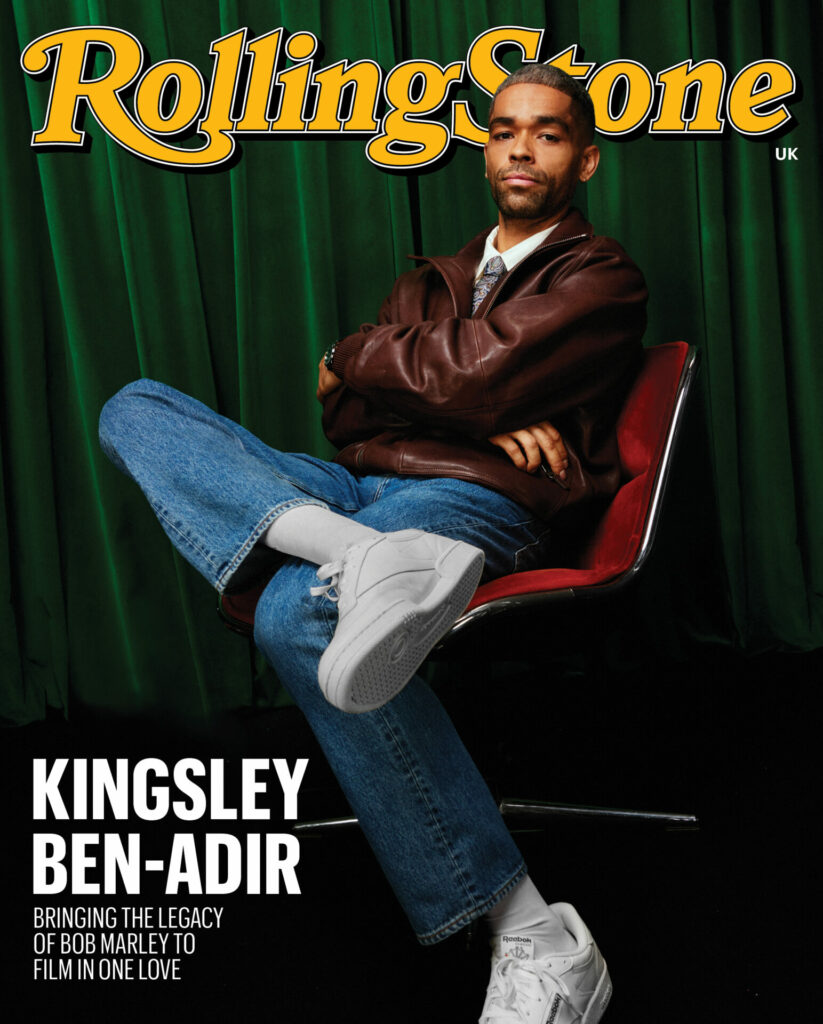
“But when I saw Kingsley’s tape, it was the first time that a light bulb had gone off for me. It felt different. If you’ve met Kingsley, you’ll know he’s got an incredible presence, and he’s a deeply intelligent and sensitive man. After I watched that tape, my tentacles were going off, and I just thought, ‘This guy is special.’ So, obviously, I spoke to Ziggy and told him how significant I thought the tape was. Because I wasn’t looking for a musician, I didn’t care if he could sing or dance or any of that stuff. I just cared if he could act and, man, I saw that in him.”
It was crucial that the Marley family felt the same about Ben-Adir. Ziggy Marley admits that it was a surprise to be considering a British actor for the role. “We were looking for somebody from Jamaica or somebody who had the dialect straight away, but when we saw his audition, he immediately kept our attention. As a family we never felt like he was trying to mimic Bob, and there was a magnetism missing before Kingsley came. We needed somebody who had it like Bob had it, and this is how I felt about Kingsley. He just kept our attention the whole time and just did a really great job.
“We’ve been showing friends, and nobody is questioning his interpretation. There’s no question that this man has done the thing that we asked him to do.”
Early footage of the film viewed by Rolling Stone UK proves that Ben-Adir is a remarkable fit as Marley. He manages to nail the singer’s irrepressible spirit and spring-like sprightliness while performing on stage.
An hour spent in Ben-Adir’s company is enough to leave you wondering if the actor’s spirit played a large part in his selection, too. His answers are punctuated with deep, thoughtful pauses, allowing him to answer with remarkable clarity and insight. Interview clips of the late Marley show that he possessed the same qualities.

But when Ben-Adir’s casting was announced in January 2022, it caused a stir back in Marley’s native Jamaica, with some refusing to accept that the country’s most famous export would be played by a British actor. “You searched for a year and couldn’t come up with a Jamaican?” wrote one critic on social media. “It won’t be the same as using a Jamaican or one of his kids. We need that raw Jamaican patois in order to feel the vibration.”
Responding to the criticism today, Ben-Adir says that he’s letting his performance do the talking, while explaining that the approval of Marley’s family should be the final word on the matter. “Without the support of Bob’s family, I wouldn’t have gone near it,” he says. “It’s not my job to explain why I was cast, but in my mind all I know is that Rei [director] and [Marley’s] family made their decision, and I felt love, and I felt trust and that allowed me to think, ‘Right, I’m going to go fully 100 per cent on this.’
“I mean, I sat with the head of Paramount early on, and I said to him: ‘When you say go, I’m going to go, just so you know. When I go, there will be emails, and there will be ideas, and I’m going to be non-stop in my research.’ They were suddenly like ‘All right, this guy is crazy enough to do it.’”

When Ben-Adir went to Marley’s homeland for filming, it left him in no doubt as to the magnitude of his task. “When I went to Jamaica, I saw pictures of Bob on every road. There were statues of him everywhere, and the significance of this man to that culture is just unlike anything you’ve ever seen,” he thoughtfully explains. “So that meant there was a huge feeling of respect and pressure, and I knew I couldn’t do it unless we represented the language and culture to the fullest.”
True to his word, Ben-Adir set about immersing himself in the role, even down to perfecting the language of Jamaica. “Patois is not a dialect,” he says. “It’s a different language entirely, and it was about making sure that everyone understood that. This is a foreign language film with no subtitles, so this challenge proved massively important. We needed to stay true to Bob and the culture because that language is the emotional through-line of the story for a universal audience.”
To learn Patois, Ben-Adir recalls trawling through a treasure trove of rare archival interviews he was given by Marley’s daughter Cedella. He would painstakingly transcribe each one, before seeking dialect advice from local Jamaicans while filming in the singer’s native country, as well as from the local musicians who play The Wailers in the film. “I’d been prepping on my own for seven or eight months, but suddenly the descendants of The Wailers were playing! Suddenly, there was this community, and they were so supportive of me and there to help. There were always people to bounce off. Neville Garrick, Bob’s best mate who died recently, he’d be there, and he’d just say ‘Nah, Bob would do this like that!’ I was grateful there was a real understanding that I wasn’t just trying to do an impersonation. There were flashes of Bob’s spirit, but it’s Bob through me. This is my interpretation of who he was.”
There was also the challenge of playing guitar. Ben-Adir taught himself, spending hours trawling through basic tutorials on YouTube, and reached a proficient standard. He learnt to sing, too, with the film’s final cut blending his own vocals with those of Marley’s. And in a bizarre meeting of two worlds, these preparations began when he found himself on-set in the pink plastic-fantastic world that defined Greta Gerwig’s box-office smash, Barbie, in which he plays one of many incarnations of Ken. “The funny thing is that I found playing Bob to be an emotionally intense experience, but Barbie was no less so the case,” he surprisingly admits. “My character goes into the big battle in that film, and he feels like he’s going to lose his best friend, Big Ken, and maybe even his life.”
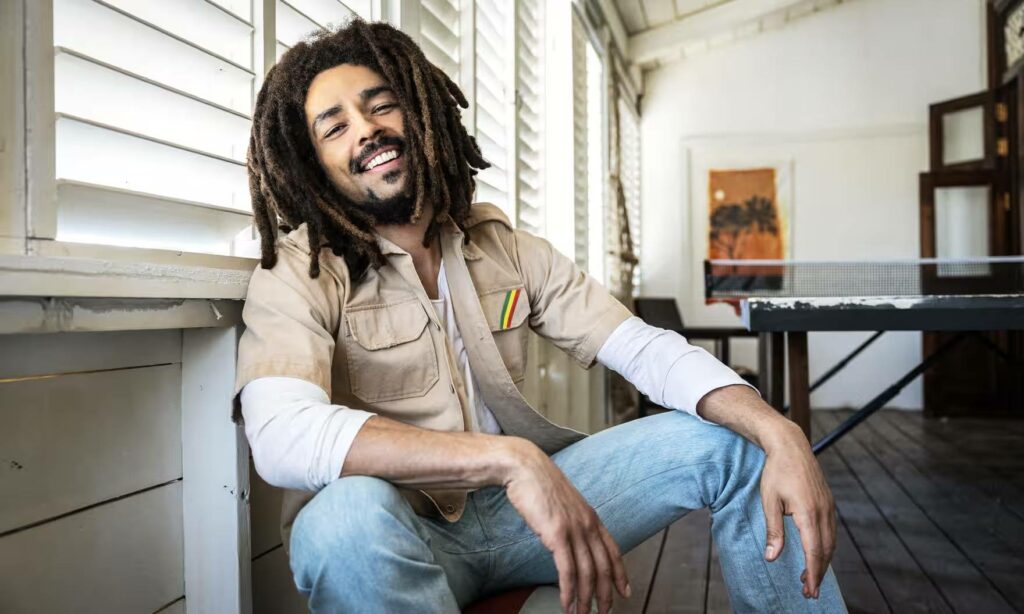
While undeniably starker in One Love, mortality is a theme shared by both films. One Love begins with the assassination attempt that almost claimed Marley’s life in December 1976, before charting the years he spent in London making the seminal Exodus album. Later, it traces his historic performance at the One Love Peace Concert in Kingston, Jamaica, in April 1978, which sought to bring unity at a time of mass political unrest.
Marcus Green says that City Of God, the noughties crime epic which tackled gang life in Rio De Janeiro, proved to be an unlikely inspiration. “I was leaning towards the idea of making our own City of God,” he says. “We wanted to make a raw, gritty film that has music in it. That film was a real touchstone because it offers so much in understanding the politics of Brazil without going into it. We wanted to do that for Jamaica. We’re making a film big on scale, but we wanted to make it feel intimate.”
This intimacy extends to the portrayal of Bob Marley, the man, too, Ben-Adir insists. The film focuses on the creation of Exodus, but it also looks at Marley’s personal flaws, too. “I had lots of private conversations with Bob Marley’s family that will stay between us, but they helped me to understand the struggles he went through on a personal level as a child, and it breaks your heart for any child to go through what he did,” says Ben-Adir. “Bob had undiagnosed complex PTSD. It’s not to say there wasn’t love in his family, but the streets were rough back then, and Jamaica was a tough place. It was a tough place to be small and light-skinned. Bob was mixed race, and I knew that before because I am mixed race too, but not everyone does know that.
“Bob became a tough guy as a result of that adversity. There’s this westernised image of him, the university campus image of him. But Bob was a boss. He was a tough, tough guy. The Wailers called him Skip, they called him the general, and he was a disciplinarian in the studio, and he could look after himself.”

The cameras began rolling in London in late 2022, before heading to Jamaica in the early portion of last year to capture some of the film’s most integral scenes. They included that pivotal moment at the 1978 One Love Peace concert when Marley famously got Michael Manley (the then leader of the ruling People’s National Party) and his political rival Edward Seaga (leader of the opposing Jamaica Labour Party) to join each other on stage and shake hands.
Over a Christmas break in filming, Ben-Adir took to finessing Bob’s on-stage movements and found a through-line in the unlikeliest of places. “I was trying to understand Bob’s dancing because you can’t choreograph him; he was so kind of wild and free and instinctive. But when I used technology to isolate instruments, you could realise that Bob was following the conducting of the drum.” To illustrate the point further, Ben-Adir suddenly rises from his chair and begins moving like Marley — almost like giving Rolling Stone UK our own private performance. “The reason he dances differently in every song is because the drums are different in every song. I would just rehearse playing the drum beat and the lyrics, and it started to make sense. He’s completely telling the drummer what to do through his movements, and I thought that was quite astonishing. He was leading the band through his movements.”

Further inspiration struck when he watched Stop Making Sense, Jonathan Demme’s legendary film that captures the art-rock band Talking Heads in concert over four nights at Hollywood’s Pantages Theatre. “I put it on and was struck by David Byrne doing a similar thing. I couldn’t work out what it was, but then I looked at the drums, and it was just so similar. I thought, ‘Yes, that’s it.’” In rehearsals, he recalls getting drummer Hector Roots Lewis — who plays The Wailers’ Carlton Carly Barrett — to play the funk music of James Brown to get the actors warmed up. “It was just so much fun. I found the dancing and the guitar and the singing so much fun once you get over the embarrassment of looking like an idiot.”
Looking like an idiot? “Well, you have to make mistakes in order to get to the goal,” he expands. “The best actors are brave and courageous, and they’re not scared of making a fool of themselves, and I’ve definitely got better at that. As I’ve got older, I couldn’t give a fuck. I’m now honestly at the point where I’ll just say ‘What do you need me to do? Let’s do it because I know it’s all in service of trying to find the story.’”

That sense of empowerment comes from his time playing another 20th-century icon. “It’s all Regina King who let me play Malcolm X, that’s who I owe it to. She trusted in me and believed me when everyone else was telling her the opposite. She gave me full creative freedom. She didn’t know what she was doing for me at the time, but she gave me an opportunity I’d been hoping and dreaming of since I was 16. She let me fly,” he says of his Hollywood break-out.
When asked who his detractors were when he was tackling the role of Malcolm X, Ben-Adir suddenly sits forward in his chair, deep in thought and pauses for a moment. “There was a lot of pressure to cast someone who was African American, but the African-American actor, who was very high profile, dropped out of the movie two weeks before. And if you do write about this, the full context is very important,” he clarifies.

“The part was turned down again by three or four people, and it was an emergency situation. She was starting filming in three or four weeks, and she needed the actor to come and play Malcolm, who was able to elevate that text. I was available, and what’s important is her trust in me on-set to try things out and wanting to show Malcolm in a different way — his gentle spirit. Regina and I just really aligned in that way.”
From the hour spent in Ben-Adir’s company, it’s clear that he is a man with a point to prove with his biggest role yet. His commitment to nailing the smallest aspects of Marley’s personality shows an admirable commitment to his craft. One thing he stopped short of, however, is the extreme method acting that some actors have recently resorted to for biopics. Most notably, Austin Butler admitted that he didn’t see his family for three years while filming Elvis and even spoke in the King’s distinctive Memphis drawl for the whole shoot. “Just to be clear, everyone’s got their own way they work, and I can be around any actor as long as they bring their A-game, and Austin definitely brought his to that film,” he says thoughtfully, evidently keen to avoid any misinterpretation or to be drawn into a headline-driven war of words.
“He did what he needed in order to create that incredible performance, but I tend to stay in more of a deep concentration for the whole project. I’d say five minutes before we start rolling, I’ll need to concentrate and go from there. I’ve always thought you need to be prepared for the reality that it’s 7am, and they could be shooting your biggest scene. Football is a good comparison because those guys need to be ready from the minute that the ref blows the whistle, and I kind of look at it like that.”
Alongside Ben-Adir as Marley, the film boasts an impressive roll call of British talent. Happy Valley lead James Norton appears as Island Records founder Chris Blackwell, while Lashana Lynch — best known for her turn as MI6 agent Nomi in Bond film No Time to Die — appears as Marley’s wife Rita. On screen, Ben-Adir and Lynch’s intense chemistry replicates that of Bob and Rita, who famously stood by each other despite a string of extra-marital affairs on both sides. “The work that Lashana has done on this film speaks for itself,” says Ben-Adir. “It’s incredible, and whenever Lashana was on set, it was always a better day. She just brings an intelligence and a sense of grounded sensitivity to everything she does, and she was always looking out for me.”

Lynch, who is of Jamaican descent, similarly explains how Ben-Adir was at huge pains to offer a true and rounded portrayal of Marley. “He doesn’t know this, but thinking on Kingsley’s commitment to Bob and my culture actually makes me emotional,” she says. “I hadn’t worked with an actor who lives, eats, breathes and takes such delicate care when protecting the human they are portraying. In many moments, I became Rita off the back of my want for protecting Kingsley on set. He gives an unbelievable amount to his craft, so part of my job was to ensure this man was protected at all costs. Seeing him draw sweat from embodying Bob energetically was like nothing I’d ever seen. In return, I’ll applaud him forever.”
For Ben-Adir, unsurprisingly, it has forever changed his relationship with a true musical great. “It’s funny because I can’t even remember now what my relationship with Bob and his music was like before going into this film. To spend a year and a half just thinking about him and living in that space, I loved it. I’ve really loved it.”
Taken from issue 15 of Rolling Stone UK. Buy it here.
Photography by Danny Kasirye
Creative Direction by Joseph Kocharian
Grooming by Liz Taw at The Wall Group using Omorovicza
Fashion Assistant: Scott Cruft
